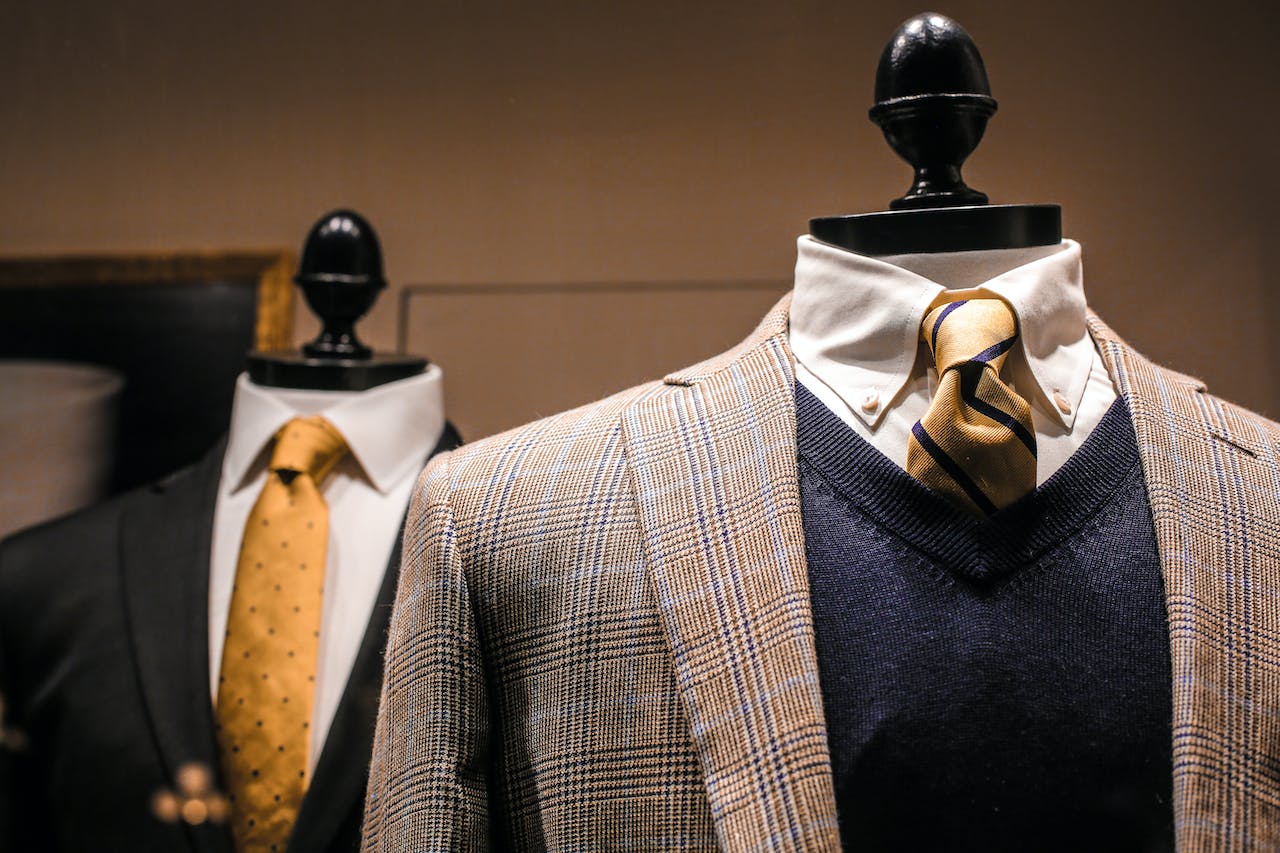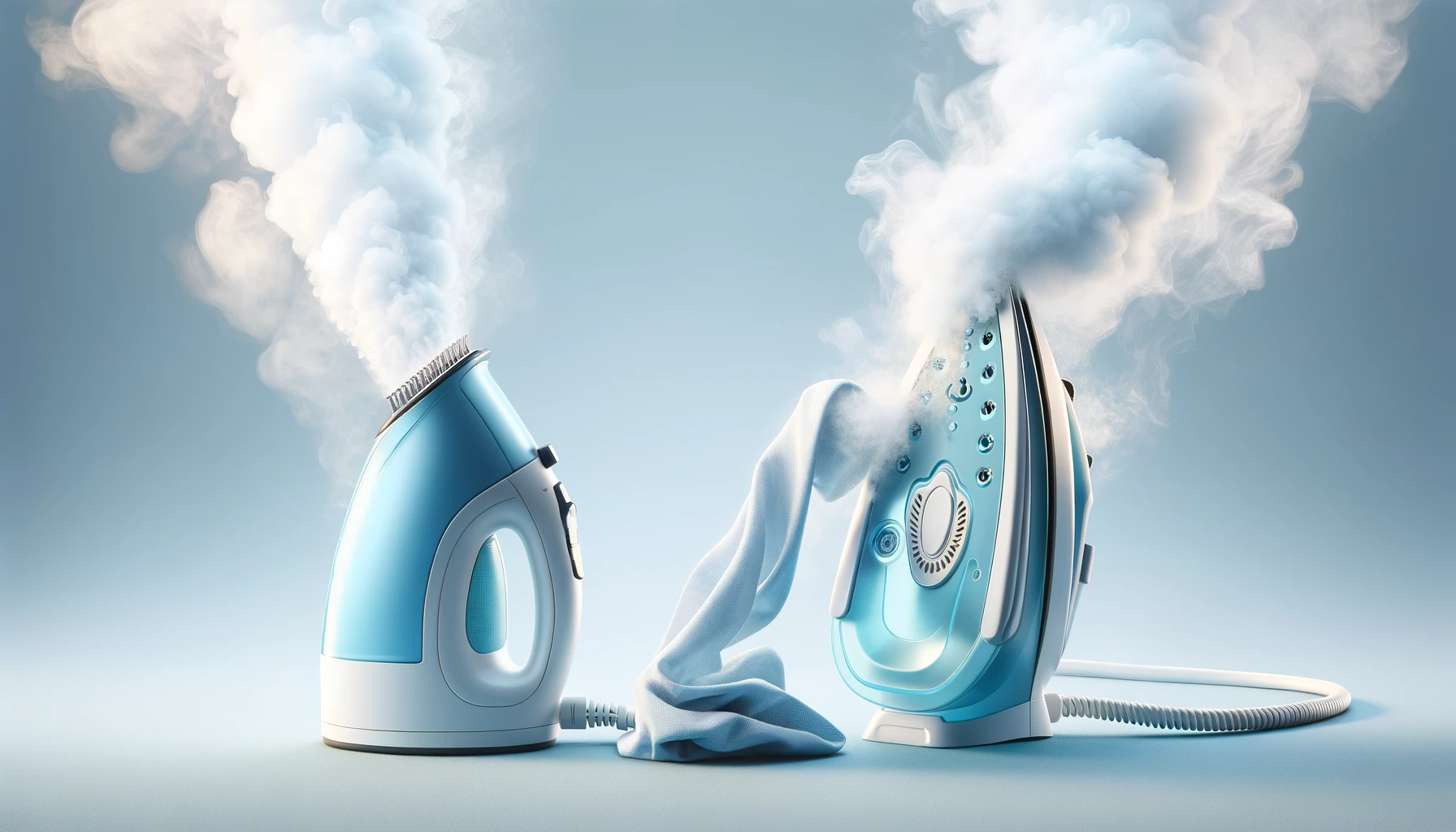When it comes to choosing the perfect men’s suit, the material is as crucial as the cut or the color. In the world of suiting, two fabrics often come to the forefront of the conversation: polyester and wool. Both materials have their unique characteristics and appeal, but understanding their differences is key to making an informed decision. In this comprehensive guide, we delve into the details of polyester and wool suits, comparing their properties to help you discern which is the best fit for your lifestyle and needs. Whether you're preparing for a business meeting or a social event, knowing the ins and outs of these fabrics can elevate your style and comfort.
Understanding the Basics: Wool Vs. Polyester suits
While opinions fly around wool and polyester as suit materials, it’s important to understand exactly what we’re talking about before we move any further. Let's first do a breakdown comparing polyester vs wool materials.
What is Polyester?
Polyester, a synthetic fabric, has become a staple in the modern wardrobe. Originating from a complex chemical reaction involving coal, petroleum, air, and water, this fiber was introduced in the 1940s and has since revolutionized the clothing industry. Polyester is admired for its durability, resistance to shrinking and stretching, and its quick-drying properties. Commonly used in a variety of garments, from casual wear to formal suits, it offers a cost-effective and practical solution for everyday apparel.
What is Wool?
Wool, a natural fiber harvested from sheep and other animals, has a rich history in suit-making that dates back centuries. Known for its warmth, breathability, and distinctive texture, wool has long been the fabric of choice for high-quality suits. Its natural crimp helps wool suits drape beautifully while providing excellent insulation. Despite its traditional roots, wool continues to be a favored choice in contemporary fashion, revered for its elegance and comfort.
A Direct Comparison of Wool And Polyester Suits
Now that we have the basic idea of wool and polyester covered, let’s compare the qualities and features of polyester suits with wool suits.
Comfort and Breathability of Polyester Vs. Wool
One of the most significant differences between wool and polyester suits lies in their comfort and breathability. Wool's natural fibers allow for superior air circulation, making it remarkably breathable. This feature ensures that wool suits are comfortable to wear in various climates, maintaining a balance of warmth and coolness as needed. On the contrary, polyester, being a synthetic material, tends to be less breathable. This can sometimes lead to discomfort in warmer temperatures or during extended wear.
A common question that arises is, "Are wool suits hot?" The answer varies depending on the weave and weight of the wool. Lighter wool suits are surprisingly suitable for warmer months, offering a level of breathability that is hard to achieve with polyester.
Durability of Wool and Polyester Suits + Maintenance
When it comes to durability, both wool and polyester have commendable strengths. Polyester suits are known for their resilience against wear and tear, retaining shape and color over time. They resist shrinking and are less prone to wrinkles, making them a practical choice for frequent use. Wool, while slightly more delicate, boasts durability due to its natural fibers that can bend and recover easily, reducing the likelihood of permanent creases.
Maintaining a wool suit, however, does require more attention. Questions like "Can you iron a wool suit?" are common. The answer is yes, but with some caution. Wool suits should be ironed on a low heat setting with a pressing cloth to avoid scorching. Steaming is also an excellent option for wool suits, as it gently removes wrinkles without direct contact. In contrast, polyester dress suits are easier to care for, often requiring minimal ironing due to their wrinkle-resistant nature.
Warmth and Suitability for Seasons
The debate over whether or not polyester is warmer than wool is interesting. Wool as a material inherently has better insulation properties, making it warmer. This characteristic makes wool suits a preferred choice in colder seasons. However, interestingly, wool's breathability also allows it to be more comfortable than polyester in warmer months as well, especially when tailored in lighter weaves.
Polyester does not insulate as well as wool, but its resistance to wind and moisture can be advantageous in mild to moderately cold conditions. Yet, in terms of versatility across seasons, wool fiber suits outshine their polyester counterparts. If you want to optimize your wardrobe for summer, check out our guide to summer suits here. Alternatively, we created a unique suit blend especially for Summer: the xSuit Air.
Men’s Wool Suits Vs Polyester in Style and Appearance
Style and appearance are where wool suits truly shine. Mens wool suits are often associated with a higher level of sophistication and class. The natural fibers of wool allow for a richer depth of color and texture, providing an elegant and professional appearance. "Wool suits for men" symbolize a timeless choice that exudes style and confidence. On the other hand, polyester suits, while having improved significantly in quality, can sometimes lack the same level of finesse and depth found in wool suits. They are, however, a more budget-friendly option for those who prioritize practicality.
The Downsides of Wool and Polyester
Now that we’ve covered the bases when it comes to a general comparison, let’s look at some areas where both polyester and wool are found lacking — and if there’s an alternative.
Limitations of Polyester
While polyester suits vs wool offer durability and ease of maintenance, they do have limitations. The question "Are polyester suits bad?" isn't straightforward. Polyester is often criticized for its lack of breathability, which can lead to discomfort in warmer conditions. Additionally, the feel of polyester fabric can sometimes be perceived as less luxurious compared to natural fibers like wool, potentially impacting the overall look and feel of the suit.
Challenges with Wool
Wool suits, despite their many advantages, come with their own set of challenges. They are more susceptible to wrinkles and require careful maintenance to keep them looking their best. Stains can also be more problematic in wool suits, necessitating professional cleaning. Furthermore, the initial investment in a quality men’s wool suit can be significantly higher than that of a polyester suit, making it a more considerable decision for some buyers.
So, is wool better than polyester? Well, in most situations. The answer is yes. Overall, wool is typically better than polyester for breathability, warmth, durability, and quality.
If you’re looking for a complete buyer’s guide for men’s dress suits — no matter the material — we have you covered here. You might not be able to find the best of both worlds with a pure polyester or wool suit. Thankfully, there are alternatives.
Enter Wool Blends Like TechWool
While wool might be better than polyester in most situations, wouldn't it be great if there was something even better than wool?
Enter “TechWool,” xSuit's revolutionary fabric that redefines the standards of suit material. TechWool is a proprietary blend that ingeniously combines the best attributes of wool, polyester, and spandex.
This innovative fusion results in a fabric that offers maximum stretch, ensuring unparalleled comfort and freedom of movement. What sets TechWool apart is its ability to resist wrinkles, making it ideal for the on-the-go professional. Its extra breathability is a testament to advanced textile technology, surpassing traditional fabrics in airflow and temperature regulation.
Additionally, TechWool suits are machine washable, a rare feature for woolen suits that simplifies maintenance significantly. The fabric's stain and odor resistance further enhance its practicality, making it a smart choice for busy lifestyles.
The Superiority of TechWool

TechWool stands tall when compared to traditional wool and polyester. It addresses the key limitations of both materials: whereas wool is often challenging to maintain and less resistant to stains, and polyester fibers can lack breathability and richness in texture, TechWool offers a solution to these issues. Its unique composition ensures that it maintains the elegance and sophistication associated with wool, while incorporating the durability and easy care characteristic of polyester. The addition of spandex allows for a stretch that moves with you, accommodating a dynamic lifestyle without compromising on style.
Practical Applications of Wool Blends Like TechWool
The versatility of TechWool suits makes them ideal for a variety of occasions. From the boardroom to a destination wedding, these dress suits cater to both formal and semi-formal settings. The resilience of TechWool fabric ensures that you look impeccably sharp for business meetings, while its comfort and breathability make it a perfect choice for outdoor events like weddings. The term "woolen suit" takes on a new dimension with TechWool, offering a modern twist to a classic staple.
The Age-Old Debate of Polyester Vs Wool Suits: Settled
The comparison between polyester and wool suits sheds light on the strengths and weaknesses of each material in the context of modern suiting needs.
TechWool emerges as a groundbreaking fabric that not only meets these needs but exceeds expectations by blending the best properties of wool and polyester with the added benefits of spandex. Its innovative features like maximum stretch, wrinkle resistance, breathability, and easy maintenance make it a standout choice. We encourage readers looking for a high-quality and unique dress suit for men to consider xSuit's TechWool suits for their next purchase.
Experience the future of suiting with xSuit – where comfort meets elegance.


